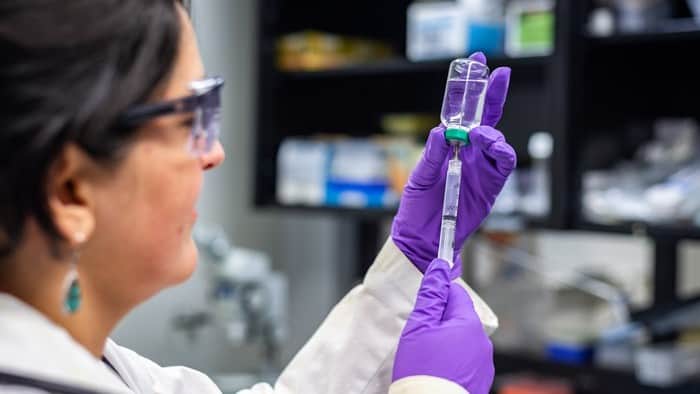The S&P/ASX 200 Index (ASX: XJO) could be given a boost today from news that there is now a second potentially effective COVID-19 vaccine.
Overnight, biotechnology company Moderna released an update on its Phase 3 study of mRNA-1273.
What did Moderna announce?
According to the release, the National Institutes of Health-appointed Data Safety Monitoring Board (DSMB) for the Phase 3 study informed Moderna that the trial has met the statistical criteria pre-specified in the study protocol for efficacy, with a vaccine efficacy of 94.5%.
This study enrolled more than 30,000 participants in the U.S. and is being conducted in collaboration with the National Institute of Allergy and Infectious Diseases (NIAID).
The primary endpoint of the phase 3 study is based on the analysis of COVID-19 cases confirmed and adjudicated starting two weeks following the second dose of vaccine.
This first interim analysis was based on 95 cases, of which 90 cases of COVID-19 were observed in the placebo group versus 5 cases observed in the mRNA-1273 group. This resulted in a point estimate of vaccine efficacy of 94.5% (p <0.0001).
Pleasingly, the interim analysis did not report any significant safety concerns. A review of solicited adverse events indicated that the vaccine was generally well tolerated.
"A pivotal moment."
Moderna's Chief Executive Officer, Stéphane Bancel, commented: "This is a pivotal moment in the development of our COVID-19 vaccine candidate. Since early January, we have chased this virus with the intent to protect as many people around the world as possible. All along, we have known that each day matters."
"This positive interim analysis from our Phase 3 study has given us the first clinical validation that our vaccine can prevent COVID-19 disease, including severe disease," he added.
The company expects to have approximately 20 million doses of mRNA-1273 ready to ship in the U.S. by the end of the year. After which, it remains on track to manufacture 500 million to 1 billion doses globally in 2021.
Moderna's vaccine candidate, like that of the Pfizer vaccine, is using mRNA technology. This is a new approach to vaccines that uses genetic material to provoke an immune response.









